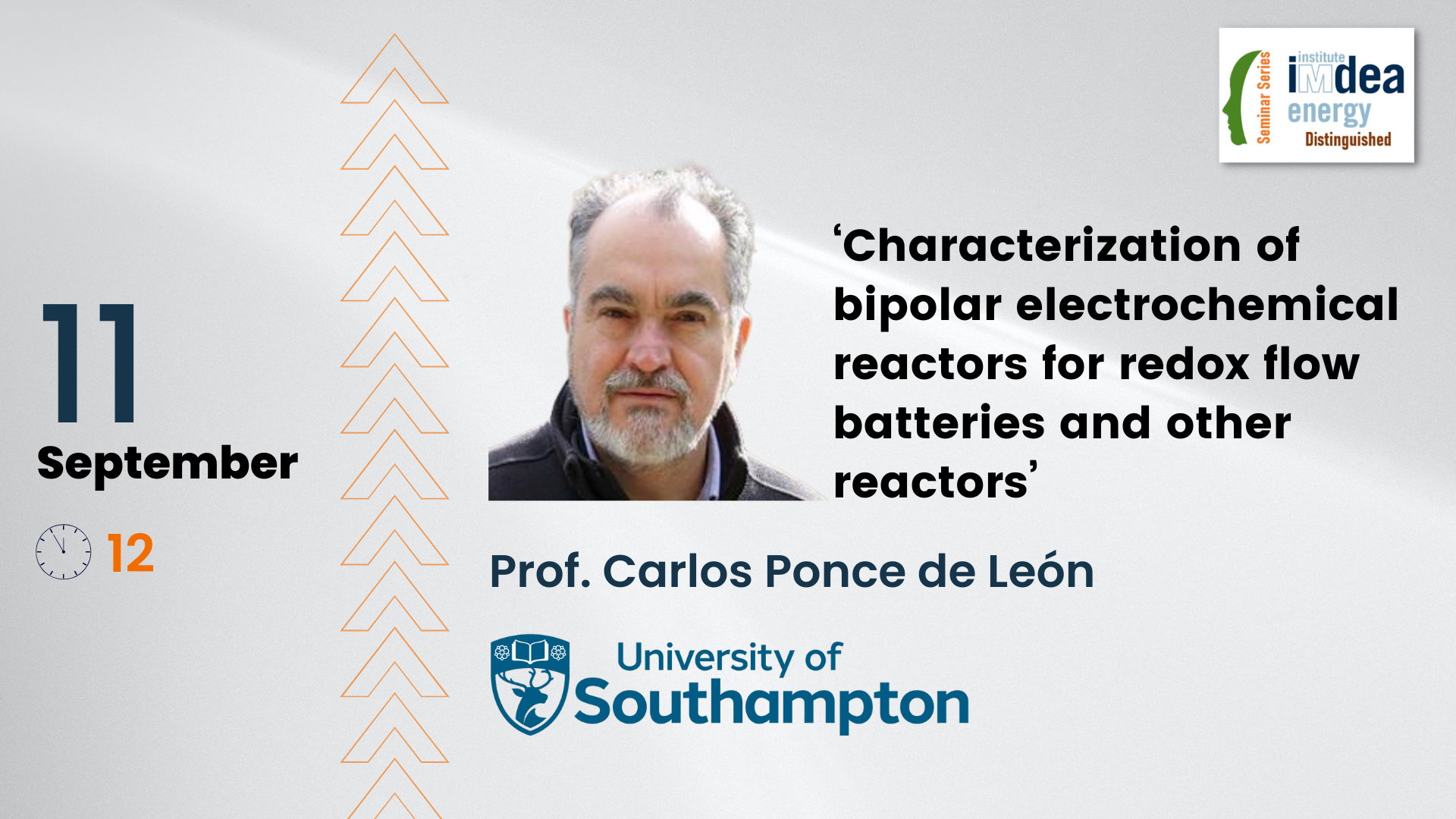Distinguished seminar: «Characterization of bipolar electrochemical reactors for redox flow batteries and other reactors»

Summary
The talk «Characterization of Bipolar Electrochemical Reactors for Redox Flow Batteries and Other Reactors» will focus on the analysis and assessment of bipolar electrochemical reactors. These reactors play a crucial role in systems like redox flow batteries and potentially other applications. The presentation will delve into various aspects, such as their design, performance, efficiency, and practical applications. Additionally, it will cover methods and techniques for characterizing these reactors, providing valuable insights into their behavior and effectiveness within specific energy storage or electrochemical systems.
Short bio
Professor Carlos Ponce de León belongs to the Electrochemical Engineering Laboratory of the Mechanical Engineering Department at the University of Southampton. He has been working with Prof Derek Pletcher who is one of the most influential electrochemist all around the world. His experience includes working as a researcher at the University of Bath in the bromine-polysulfide redox flow battery and at the Autonomous Metropolitan University in Mexico in several projects. He has participated in research projects funded by the Science and Technology Laboratory (Dstl), the Naval Undersea Warfare Center (USA), the EPSRC, the European Union (FP7 and H2020) and several industrial companies. His research interests include development of improved redox flow cell components, engineering of proton exchange membrane fuel cells (PEMFCs), characterization of membrane and electrode materials for PEMFCs and electrochemical hydrogen compression, improvements in electrocatalysts and reactor design for direct borohydride fuel cells and electrochemical reactor designs for carbon dioxide reduction and hydrogen peroxide production. He has been author of 193 scientific publications in peer-reviewed journals covering a wide range of research areas; Electrochemistry, General Chemical Engineering, Renewable Energy Sustainability and the Environment, Surfaces, Coatings and Films, and Electrical and Electronic Engineering with a total number of citations of 9825 and an h index of 48 (by Scopus).


